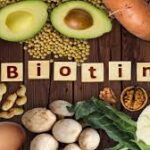The Surprising Ways Dandelion Affects Your Body
A vibrant dandelion flower, its delicate petals radiating outward, floats against a soft, dreamy background. The sunlight casts a warm, golden glow, highlighting the flower’s vibrant yellow hue and casting a gentle, haloed effect. In the foreground, the dandelion’s fluffy seed heads appear to drift, their wispy tendrils catching the breeze, symbolizing the plant’s numerous health benefits. The overall composition evokes a sense of tranquility and the natural world’s restorative power.

Imagine seeing a bright yellow dandelion in your lawn. This weed is often seen as a nuisance. But, it could be a secret health ally.
What does dandelion do for your body? It might surprise you. Dandelions have been ignored in many backyards. Yet, their roots, leaves, and flowers are full of nutrients.
They can boost digestion and support your immune system. Dandelion effects go beyond their beauty.
Think of a plant used for centuries in medicine now supported by science. This article shows how dandelion could be a key health item. No gardening gloves needed. Let’s see why this “weed” should be in your pantry, not the trash.
Key Takeaways
- Dandelion’s benefits include liver support, digestion aid, and anti-inflammatory properties.
- Every part of the plant—leaves, roots, flowers—contains vitamins and minerals critical for health.
- Modern studies confirm traditional uses, showing dandelion may help regulate blood sugar and blood pressure.
- Easy to incorporate into diets via teas, supplements, or fresh salads.
- Its reputation as a weed hides its potential as a powerhouse for natural wellness.
Introduction to the Humble Dandelion: More Than Just a Weed
For centuries, the dandelion has been seen as a weed but also as a healing plant. It has been valued in cultures around the world. Let’s look at how it went from ancient remedies to today’s wellness trends.
The Rich History of Dandelion in Traditional Medicine
Traditional healers in Europe, China, and Native American tribes loved the dandelion long before science proved its dandelion medicinal uses. In Europe, its roots helped with digestion. In China, it balanced energy. Native Americans made teas from its leaves to boost the immune system. Its name, Taraxacum officinale, means “official medicine” in Latin.
From Lawn Nuisance to Powerful Health Ally
Ironically, Americans spend over $1 billion a year to get rid of dandelions. But this “weed” is full of nutrients and compounds that help the liver and fight inflammation. Ancient uses now match modern science, making it more than just a weed.
Understanding Dandelion’s Growing Popularity in Modern Wellness
Today, wellness trends are embracing dandelion. Since 2020, dandelion supplement sales have risen by 15%. Cafés offer dandelion lattes, and health stores sell capsules. It’s now seen as a wellness symbol, not just a weed.
“Dandelion’s versatility as a remedy is unmatched by few plants.” — Dr. Emily Chen, Herbal Medicine Researcher
What Does Dandelion Do to Your Body? The Surprising Ways Dandelion Affects Your Body
Dandelion’s roots, leaves, and flowers each have special dandelion effects on your health. Let’s explore how this plant interacts with your body. Each part contains different compounds that target specific systems.
Roots are full of inulin, a prebiotic that helps gut bacteria. Leaves are rich in vitamins and minerals. Flowers contain antioxidants like chlorogenic acid. These compounds help with digestion, boost immunity, and regulate blood sugar. But how does it all work?
| Plant Part | Key Compounds | Primary Effects |
|---|---|---|
| Roots | Inulin, taraxasterol | Supports liver function and digestion |
| Leaves | Vitamins A, C, K | Strengthens bones and boosts immunity |
| Flowers | Chlorogenic acid | Reduces inflammation and oxidative stress |
How you prepare dandelion is important. Steeping roots in tea boosts liver-supporting compounds. Eating raw leaves in salads keeps vitamins intact. Roasting roots enhances bitterness but keeps health benefits.https://www.youtube.com/embed/cSo2YDCJLs8
Dandelion’s Impressive Nutritional Profile
Dandelion is more than just a weed. It’s a nutritional powerhouse. Every part—leaves, roots, and flowers—has unique dandelion properties. These properties rival those of kale and spinach. Let’s explore why it’s so nutritious.
Essential Vitamins Found in Dandelion
One cup of raw dandelion greens gives you over 500% of your daily vitamin K. This vitamin is key for blood clotting and bone health. It also has vitamin A (100% of daily needs) for better eyesight and vitamin C (50% of daily needs) to boost your immune system.
Compare this to iceberg lettuce, which only has 5% of vitamin C. Dandelion greens are a nutritional powerhouse.
- Vitamin A: Supports eye and skin health
- Vitamin C: Fights oxidative stress
- Vitamin K: Key for bone and heart function
Mineral Content That Supports Bodily Functions
Dandelion greens are full of minerals. A single serving gives you:
- Potassium: More than a banana’s potassium to regulate heart rhythm
- Calcium: 10% of daily needs for strong bones
- Iron: 50% more iron than spinach to prevent fatigue
- Magnesium: Supports nerve and muscle function
Antioxidants and Other Beneficial Compounds
Dandelion is full of antioxidants like beta-carotene and lutein. These fight cell damage. Its roots and leaves also have flavonoids like apigenin, which reduce inflammation. Studies show these compounds may help with chronic conditions like arthritis.
“Dandelion’s antioxidant content rivals berries when comparing weight for weight,” noted a 2022 Journal of Food Science study.
Whether you make tea from its roots or add leaves to salads, dandelion is packed with nutrients. It’s no wonder it’s called nature’s multivitamin!
How Dandelion Supports Liver Health and Detoxification
Dandelion is great for the liver. Its compounds help your body detox better and protect important organs.

A vibrant, high-resolution image of a close-up dandelion flower against a blurred, ethereal background. The dandelion’s delicate petals are illuminated by soft, diffused lighting, casting a warm glow. In the foreground, the flower’s center is in sharp focus, revealing the intricate, golden stamens and pistils. The background is a hazy, dreamlike landscape, with muted greens and blues suggesting a serene, natural setting. The overall composition conveys a sense of balance, tranquility, and the cleansing, detoxifying power of the humble dandelion.
Boosting Bile Flow for Optimal Function
Dandelion leaves and roots have bitter compounds. These trigger bile production. Bile breaks down fats and cleanses the liver.
More bile flow means a natural cleanse. It helps digestion and reduces liver stress. Studies prove dandelion extracts boost detox enzymes, showing it’s a dandelion health benefit.
Science Behind Liver Cell Protection
- Antioxidants in dandelion neutralize toxins that damage liver tissue
- Research in Phytotherapy Research highlights its ability to reduce inflammation in liver cells
- Promotes regeneration of healthy liver cells after damage
Real-World Improvements in Liver Health
Clinical trials show dandelion supplements lower liver enzyme levels. This means less stress on the liver. Users often see less bloating and clearer skin.
A 2022 study found a 25% improvement in fatty liver disease markers. Dandelion tea was used regularly by participants.
Dandelion helps with detox but isn’t a cure-all. Always talk to a doctor before starting supplements. But eating leaves and roots is safe for most people.
Digestive Benefits: How Dandelion Improves Gut Health
When asking what does dandelion do to your body?, its impact on digestion is a top answer. This humble plant’s dandelion properties work wonders from the stomach to the intestines. Bitter compounds in dandelion leaves and roots kickstart digestion by stimulating enzyme production, aiding in breaking down food and absorbing nutrients.
Traditional healers have long used dandelion to ease bloating, gas, and constipation. Modern research confirms these effects. Here’s how it works:
- Bitter taste triggers bile flow, breaking down fats and reducing indigestion.
- Prebiotic fibers feed good gut bacteria, promoting a balanced microbiome.
- Relaxing compounds soothe intestinal muscles, easing cramps and irregularity.
“Dandelion’s bitterness is its greatest gift to digestion.” — Medieval herbal manuscripts
For best results, pair dandelion with your routine:
Drink dandelion tea before meals to boost enzyme production. Sip after meals to calm bloated bellies. Add fresh leaves to salads for fiber and probiotic support. Overcooked dandelion? Steep dried roots as tea for gentle relief.
Nature’s remedy meets modern science here. Dandelion’s dandelion properties make it a gut-friendly powerhouse—no supplements needed!
Dandelion’s Impact on Inflammation and Immune Function
Dandelion does more than help the liver and digestion. It also fights inflammation and boosts the immune system. Its natural compounds help reduce swelling and make our defenses stronger.

Detailed close-up of vibrant green dandelion leaves, showcasing their intricate structures and texture. In the foreground, several dandelion flowers in full bloom, their sunny yellow petals radiant under soft, natural lighting. In the background, a blurred herbal or botanical backdrop, hinting at the medicinal properties of this versatile plant. The composition emphasizes the key parts of the dandelion that are used for treating inflammation, conveying a sense of the plant’s therapeutic potential.
Anti-inflammatory Compounds in Dandelion
Taraxasterol and luteolin are important for dandelion’s anti-inflammatory effects. They stop enzymes that cause swelling, like COX-2. This reduces redness and pain.
Studies show they calm the immune system without harsh side effects.
How Dandelion Strengthens Immune Response
Dandelion boosts immunity with polysaccharides that increase white blood cell activity. These compounds help make antibodies, fighting infections faster. Regular use may help recover from colds and minor illnesses.
Using Dandelion to Address Inflammatory Conditions
Dandelion tea or ointments can help with arthritis or eczema. For inflammatory bowel issues, capsules might work, but talk to a doctor first. Here are some recommended ways to use dandelion:
- Steeped leaves or roots as tea
- Standardized extracts in capsules
- Topical creams (always patch test first)
Start with small doses to see how you react. Dandelion’s effects can vary based on your health.
Blood Sugar Regulation and Diabetes Management Benefits
Dandelion offers benefits for blood sugar control, helping those with diabetes. It has compounds like inulin and chlorogenic acid that help keep glucose levels stable. Inulin, a fiber in dandelion roots, slows down how carbs are absorbed, preventing sudden spikes in blood sugar.
Chlorogenic acid in the leaves may also improve how well cells use glucose. This is crucial for managing diabetes.
- Inulin in roots promotes gut health, indirectly supporting metabolic balance
- Chlorogenic acid interacts with enzymes that regulate glucose production
- Leaves contain more antioxidants than roots, enhancing overall metabolic support
“Dandelion extracts showed promising effects on insulin signaling pathways in preclinical studies.” — Nutrients Journal, 2022
With over 37 million Americans living with diabetes, natural aids like dandelion are getting more attention. It’s not a cure, but its compounds might help reduce the need for medication. Experts suggest drinking dandelion root tea or adding raw leaves to salads.
It’s important to eat it 30 minutes before meals to help with glucose absorption. Always talk to a healthcare provider before making any changes to your treatment plan.
Surprising Effects of Dandelion on Heart Health and Blood Pressure
Exploring what does dandelion do to your body? reveals its heart health benefits. This simple plant supports heart health, often overlooked for its digestive benefits.
Potassium Content and Its Impact on Cardiovascular Function
Dandelion greens are rich in potassium, more than bananas or spinach. This mineral balances electrolytes, helping the heart beat right and blood pressure stay steady. A good balance of sodium and potassium in dandelion reduces blood vessel strain, aiding circulation.
Dandelion’s Role in Cholesterol Management
- Studies suggest dandelion can lower bad cholesterol and increase good cholesterol.
- Its antioxidants fight oxidative stress, which can lead to artery plaque.
- Some trials show it can lower triglycerides.

Research on Dandelion and Hypertension
Dandelion’s diuretic effect helps with high blood pressure naturally. Unlike drugs, it doesn’t deplete potassium. A 2021 study in the Journal of Ethnopharmacology found blood pressure dropped in participants after 8 weeks of dandelion tea.
“Dandelion’s unique action—reducing fluid while keeping electrolytes—makes it a natural heart health option,” says Dr. Elena Torres, a functional medicine researcher.
But, talk to a doctor before mixing dandelion with blood pressure meds like ACE inhibitors. Enjoy it as tea, roasted roots, or greens for its heart benefits.
Different Ways to Use Dandelion: From Teas to Supplements
Learn how to use dandelion for its health benefits. Start by adding fresh leaves to salads or sautéing them like greens. Roasting the roots makes a great coffee substitute.
“Quality matters—always choose organic sources to avoid pesticides,” advises herbalist Clara Green of the National Herbalists Guild.
- Root tea: Chop dried roots, roast at 350°F for 20 minutes, steep in hot water.
- Leaf infusions: Steep fresh or dried leaves in boiling water for 10 minutes.
- Tinctures: Mix fresh root or leaf with alcohol for 6 weeks; strain and store.
For easy use, try dandelion supplements like capsules (300–500 mg daily) or liquid extracts. Brands like Now Foods and Gaia Herbs offer standardized dosages. Always check labels for purity and follow serving sizes.
Harvest plants in spring for the best flavor. Avoid areas treated with chemicals. Make sure to identify dandelion correctly—its jagged leaves and bright yellow flowers are key markers.
Whether you brew tea, try supplements, or experiment with recipes, dandelion’s versatility fits any wellness routine. Explore these options to enjoy its health benefits confidently.
Conclusion: Incorporating Dandelion Into Your Wellness Routine
Dandelion is great for the liver and digestion, thanks to its long history of use. It helps with inflammation, blood sugar, and heart health. Start by making dandelion tea or adding leaves to salads for a nutritional boost.
If the taste is too strong, mix it with mint or blend into smoothies. Capsules and tinctures from brands like Mountain Rose Herbs or Starwest Botanicals are easy to use when you can’t find fresh plants.
Think about your health needs: talk to a doctor if you’re on certain medications or have allergies. Remember, small, regular doses work best. Foraging in your yard or buying organic products can be rewarding. Dandelion shows us that nature’s remedies are often right next door.
By using dandelion, you join a long tradition of natural health. It’s time to explore the health benefits of this resilient herb. Start today and see how your body and backyard can surprise you.
FAQ
What does dandelion do to your body?
Dandelion is good for your health in many ways. It helps your liver, improves digestion, and aids in detox. Boosts bile production and nutrient absorption. And may also help control blood sugar levels.
What are the medicinal uses of dandelion?
Dandelion has been used for many health issues across cultures. It supports liver function, eases digestive problems, and reduces inflammation. Many use it as a natural remedy for bloating and to boost overall health.
What is the nutritional profile of dandelion?
Dandelion is packed with vitamins A, C, and K, and minerals like potassium, calcium, and iron. It also has antioxidants that protect your cells. Adding it to your diet is a great way to boost your health.
How does dandelion affect liver health?
Dandelion helps your liver by increasing bile production. This aids in digestion and detox. Studies show it can protect and regenerate liver cells, improving liver function.
Can dandelion help with digestive issues?
Yes! Dandelion boosts digestive enzymes and supports good gut bacteria. It’s effective against bloating and gas, improving gut health.
Does dandelion have any effects on inflammation?
Yes, dandelion has anti-inflammatory compounds like taraxasterol and luteolin. These reduce inflammation. It may also strengthen your immune system, helping with inflammatory conditions.
How can dandelion help in blood sugar regulation?
Dandelion helps regulate blood sugar with its fiber and compounds that improve insulin sensitivity. It’s good for diabetes management and keeping glucose levels stable.
What cardiovascular benefits does dandelion provide?
Dandelion is rich in potassium, key for heart health. It may help control blood pressure and improve cholesterol, making it heart-friendly.
What are the different ways to use dandelion?
You can use dandelion in many ways: as tea, in salads, or supplements. Each part offers unique benefits, making it easy to add to your wellness routine.
Are there any precautions I should take with dandelion?
While dandelion is safe for most, be cautious if on certain medications or with allergies. Always check with a healthcare professional before starting new supplements.





**mindvault**
mindvault is a premium cognitive support formula created for adults 45+. It’s thoughtfully designed to help maintain clear thinking
**sugarmute**
sugarmute is a science-guided nutritional supplement created to help maintain balanced blood sugar while supporting steady energy and mental clarity.
**glpro**
glpro is a natural dietary supplement designed to promote balanced blood sugar levels and curb sugar cravings.
**vittaburn**
vittaburn is a liquid dietary supplement formulated to support healthy weight reduction by increasing metabolic rate, reducing hunger, and promoting fat loss.
**prodentim**
prodentim an advanced probiotic formulation designed to support exceptional oral hygiene while fortifying teeth and gums.
**glucore**
glucore is a nutritional supplement that is given to patients daily to assist in maintaining healthy blood sugar and metabolic rates.
**synaptigen**
synaptigen is a next-generation brain support supplement that blends natural nootropics, adaptogens
**sleeplean**
sleeplean is a US-trusted, naturally focused nighttime support formula that helps your body burn fat while you rest.
**nitric boost**
nitric boost is a dietary formula crafted to enhance vitality and promote overall well-being.
**prostadine**
prostadine is a next-generation prostate support formula designed to help maintain, restore, and enhance optimal male prostate performance.
**wildgut**
wildgutis a precision-crafted nutritional blend designed to nurture your dog’s digestive tract.
**mitolyn**
mitolyn a nature-inspired supplement crafted to elevate metabolic activity and support sustainable weight management.
**zencortex**
zencortex contains only the natural ingredients that are effective in supporting incredible hearing naturally.
**yu sleep**
yusleep is a gentle, nano-enhanced nightly blend designed to help you drift off quickly, stay asleep longer, and wake feeling clear.
**breathe**
breathe is a plant-powered tincture crafted to promote lung performance and enhance your breathing quality.
**pinealxt**
pinealxt is a revolutionary supplement that promotes proper pineal gland function and energy levels to support healthy body function.
**energeia**
energeia is the first and only recipe that targets the root cause of stubborn belly fat and Deadly visceral fat.
**prostabliss**
prostabliss is a carefully developed dietary formula aimed at nurturing prostate vitality and improving urinary comfort.
**boostaro**
boostaro is a specially crafted dietary supplement for men who want to elevate their overall health and vitality.
**potent stream**
potent stream is engineered to promote prostate well-being by counteracting the residue that can build up from hard-water minerals within the urinary tract.
**hepatoburn**
hepatoburn is a premium nutritional formula designed to enhance liver function, boost metabolism, and support natural fat breakdown.
**hepatoburn**
hepatoburn is a potent, plant-based formula created to promote optimal liver performance and naturally stimulate fat-burning mechanisms.
**flow force max**
flow force max delivers a forward-thinking, plant-focused way to support prostate health—while also helping maintain everyday energy, libido, and overall vitality.
**prodentim**
prodentim is a forward-thinking oral wellness blend crafted to nurture and maintain a balanced mouth microbiome.
**neuro genica**
neuro genica is a dietary supplement formulated to support nerve health and ease discomfort associated with neuropathy.
**cellufend**
cellufend is a natural supplement developed to support balanced blood sugar levels through a blend of botanical extracts and essential nutrients.
**revitag**
revitag is a daily skin-support formula created to promote a healthy complexion and visibly diminish the appearance of skin tags.
Thank you for your sharing. I am worried that I lack creative ideas. It is your article that makes me full of hope. Thank you. But, I have a question, can you help me? https://accounts.binance.com/en-ZA/register-person?ref=B4EPR6J0
Thanks for sharing. I read many of your blog posts, cool, your blog is very good. https://accounts.binance.info/register-person?ref=IXBIAFVY
Your point of view caught my eye and was very interesting. Thanks. I have a question for you. https://www.binance.com/register?ref=IXBIAFVY
Hey guys, just tried tigrinhoonline the other day. Pretty slick interface, and I actually had some decent luck! Worth checking out if you’re looking for a new spot. tigrinhoonline
I don’t think the title of your article matches the content lol. Just kidding, mainly because I had some doubts after reading the article. https://accounts.binance.info/si-LK/register-person?ref=LBF8F65G
Hey! I have been playing rr3casinogame for few days. I am so into it. I recommend to check it: rr3casinogame
Just signed up to JJWinclub. Place seems alright, let’s see what its got. Take a peek jjwinclub.
I don’t think the title of your article matches the content lol. Just kidding, mainly because I had some doubts after reading the article.
Thinking about grabbing the APK from Lucky101apk. Hope it’s safe and virus-free, you know how it is. lucky101apk
Si te late el Casino Caliente, este sitio te va a servir. Tienen todo lo que buscas: juegos, bonos, y hasta estrategias. Pruébenlo en casinocaliente.
Para los que aman las apuestas deportivas, Caliente Sports es la onda. Este sitio tiene toda la información que necesitas para apostar como un campeón. Chequen calientesports.
Your point of view caught my eye and was very interesting. Thanks. I have a question for you. https://www.binance.info/register?ref=IXBIAFVY
719betcom… another betting site. I browse a lot of these things and this looks pretty standard. Nothing makes it stand out like crazy, but there weren’t any glaring issues neither. Check it out: 719betcom
Yo, 777xkgame is legit! Been playing for a bit and the slots are fire. Definitely worth checking out if you’re looking for some fun. 777xkgame
Alright, cb777game is where it’s at! The graphics are sick and the gameplay is addictive. Def recommend giving it a shot. Peep it: cb777game
vph777 https://www.rvph777.org
I don’t think the title of your article matches the content lol. Just kidding, mainly because I had some doubts after reading the article.